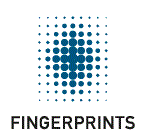Fingerprint Cards AB: Interim Report January – September 2019

Highlights of the quarter
Net cash increased to SEK 536.7 M from SEK 486.3 M in the preceding quarterThe first volume order of T-Shape for use outside the payments area.The use of FPC1511 in a smartphone model from Samsung confirmed in SeptemberFPC1520, a new capacitive sensor generation that is based on the successful FPC1511 product, was launched during the quarterThird quarter of 2019Revenues amounted to SEK 352.5 M (431.2)The gross margin was 23 percent (27)EBITDA totaled SEK 35.6 M (36.7)Operating profit was negative SEK 3.4 M (pos: 7.0)Earnings per share before dilution amounted to SEK 0.02 (0.01)Cash flow from operating activities amounted to SEK 59.5 M (202.5)January – September 2019Revenues amounted to SEK 1,077.2 M (1,110.8)The gross margin was 23 percent (neg: 8)EBITDA totaled SEK 115.4 M (neg: 514.0)Operating profit was SEK 0.9 M (neg: 746.1)Earnings per share before dilution amounted to SEK 0.02 (neg: 1.95)Cash flow from operating activities amounted to SEK 78.0 M (300.7)CEO’s commentsSales in Business Line Mobile were satisfactory, and we continued to strengthen our market position in capacitive sensors. Demand from Chinese smartphone manufacturers remained healthy. At the same time, orders attributable to our new OEM customer, Samsung, performed well. Considerable shifts in market shares among OEM customers took place during the quarter. At the same time, the revenue trend was impacted by weaker sales in Business Line Smartcards and Automotive & Embedded after a few strong quarters. The market for biometrics outside the mobile industry is growing, but it is fragmented, and – so far – significantly smaller than the smartphone market. There may therefore be considerable variations in demand from one quarter to the next in this area.The gross margin was comparable to the result for the first and second quarter this year, but was four percentage points lower compared to the year-earlier period. The relatively lower share of revenues outside of Business Line Mobile had a negative impact. In addition, the average selling price (ASP) for capacitive sensors has continued to fall. At the same time, the share of new, more cost-effective sensors in Fingerprints’ product mix has increased, and our efforts to ensure a competitive production cost continue as strong as ever. That is why we launched the FPC1520 in the third quarter – a new sensor generation that builds further on our already successful product, FPC1511. We have already received orders for it, and we expect that the first smartphones to use this new sensor will be launched as early as this year. Moreover, the FPC1520 has the potential to further increase our addressable market by making the inclusion of fingerprint sensors possible in even the simplest smartphone models.We continue to consolidate our leading position in capacitive sensors by ensuring that we have a comprehensive, competitive product portfolio for all segments. At the same time, we are continuing our work to capture a position in the growing market for in-display sensors. So far, we have not secured any design wins, but our ambition of capturing a significant share of the in-display market remains.We continued to strengthen our position as the leading provider of biometric solutions for smart cards. In September, we could announce that we are supporting our partner, MeReal Biometrics, in conjunction with an order of biometric cards for delivery in early 2020. It was also gratifying to announce in August that we had received the first volume order of our T-Shape sensor for use outside the payment area. The sensor will be integrated into a card used for secure online access and secure data storage offline. Already in our previous interim report, we stated that our partner NXP’s module for biometric payment cards – which incorporates T-Shape – had been certified by MasterCard. This is an important step towards an initial comprehensive card certification. Such a certification would finally make large-scale commercial launches of biometric payment cards possible. Fingerprints is uniquely positioned in the industry, perhaps best illustrated by the fact that our technology is being used in all published market tests to date of contactless biometric payment and credit cards around the world.Christian Fredrikson, President and CEOToday at 09:00 CET Fingerprints’ CEO Christian Fredrikson will present the report together with CFO Per Sundqvist in a combined webcast and telephone conference. The presentation will be held in English.The report will be available at fingerprints.comThe webcast and the presentation material can be accessed through https://engage.vevent.com/rt/fingerprints/index.jsp?seid=153For analysts and media: The telephone conference dial-in is +44 (0) 2071 928000 (international participants) or 08-506 921 80 (Swedish participants). Please state conference ID 8450519.AttachmentInterim report Q3 2019
